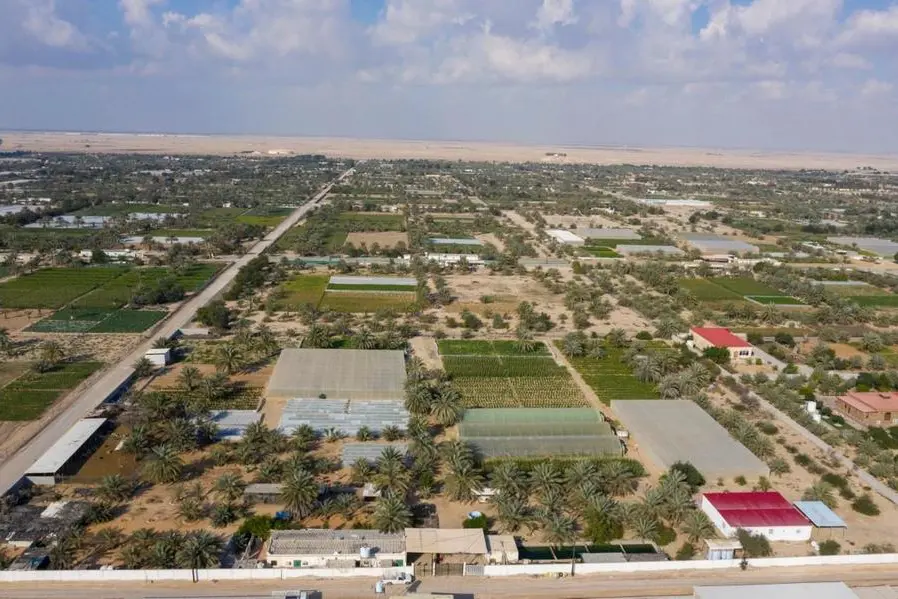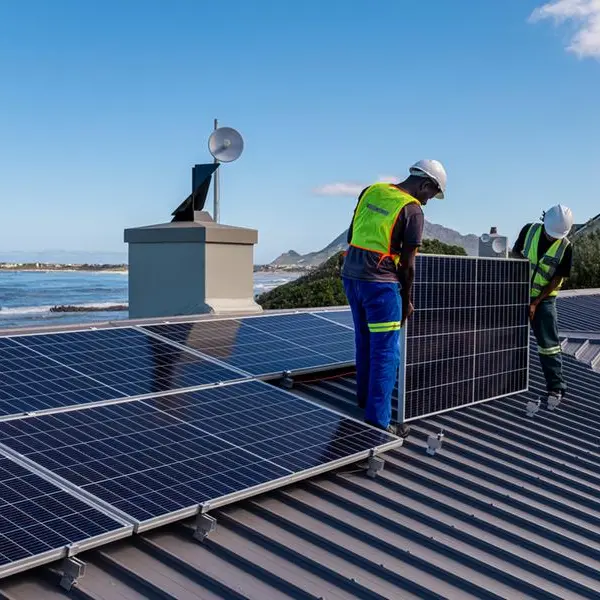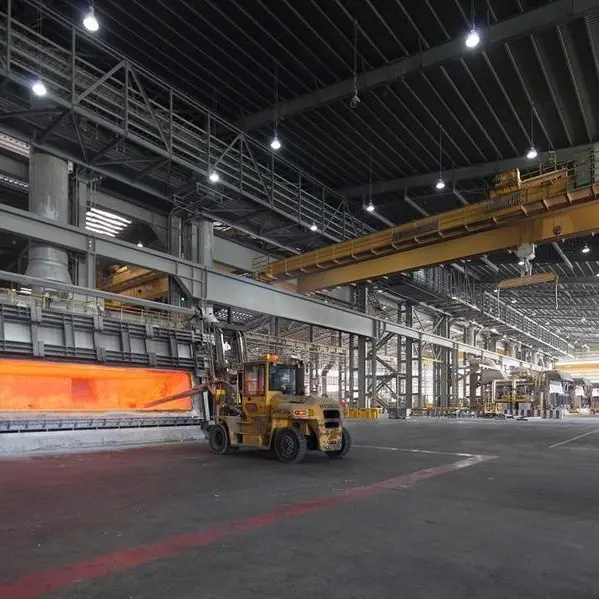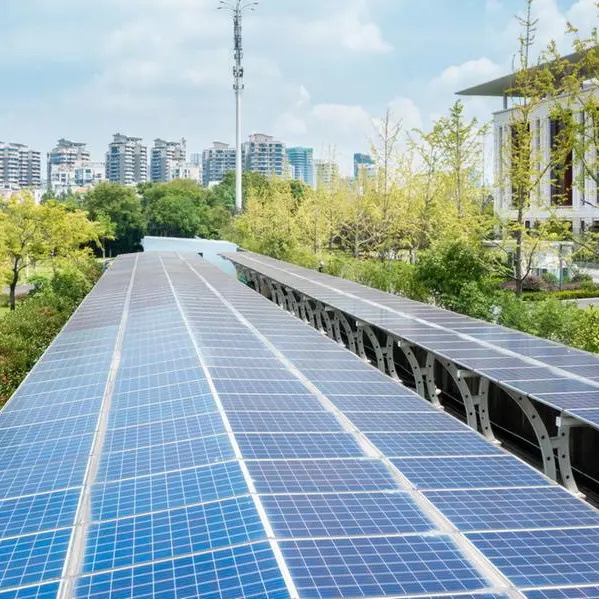PHOTO
ABU DHABI: The Abu Dhabi Agriculture and Food Safety Authority (ADAFSA) has reaffirmed its commitment to promoting the concepts of agricultural and food sustainability, and building the capacity of the agricultural sector, both plant and animal, as well as food producers and traders on best agricultural and food practices that ensure the sustainability of our natural resources.
On the occasion of World Food Day, which is celebrated every year on 16th October and this year's theme is "Water is Life, Water is Food, Leave No One Behind", ADAFSA stated that it is implementing numerous initiatives to support sustainable agricultural development and the use of modern agricultural technology. This is achieved by encouraging farmers to adopt the latest technologies and agricultural practices that can reduce water consumption while improving the quality and efficiency of productivity. This is particularly emphasised in greenhouse agriculture, with the aim of achieving global leadership in food security, increasing local production of both crops and livestock, and ensuring that all residents have access to safe, nutritious and sufficient food at all times.
With the support and guidance of His Highness Sheikh Mansour bin Zayed Al Nahyan, Vice President of the UAE, Deputy Prime Minister, Chairman of the Presidential Court and Chairman of ADAFSA, is working to develop an integrated food security system in line with the National Food Security Strategy 2051. The strategy aims to position the UAE as a leading global hub for food security innovation.
The Authority emphasised that the country's urban infrastructure fundamentally supports food security policies. Infrastructure services such as roads, bridges, and logistical support are essential elements in bolstering the food security umbrella. This is in addition to the large storage facilities like those in Khalifa Industrial City ("KIZAD"), silos, and giant food production factories that support the country's food security, providing a protective umbrella during crises and emergencies.
In line with this year's World Food Day theme, "Water is Life, Water is Food, Leave No One Behind", ADAFSA stressed the importance of preserving water resources and adopting innovative solutions and pioneering projects to mitigate the scarcity of water suitable for agriculture. This is to achieve agricultural sustainability and preserve natural resources for future generations. ADAFSA further explained that it is implementing numerous initiatives to promote water conservation in agriculture.
The Authority is also encouraging more farms to join the Abu Dhabi Good Agricultural Practices (AD GAP) programme, a local model of the GlobalGAP programme. Under AD GAP, some 1,536 farms follow good agricultural practices and have received GlobalGAP certification.
In the field of R&D related to water conservation in agriculture, a study was conducted to evaluate new plant varieties that can adapt to the climatic conditions of the country. This study aims to improve and develop plant varieties such as drought-resistant, salt-tolerant, and climate-appropriate varieties. It aligns with ADAFSA's strategy to enhance environmental sustainability and ensure the sustainable production of food and food security in the Emirate of Abu Dhabi. The impact of these efforts is evident in the improvement of water use in agriculture, which contributes to the conservation of water resources, ensuring the continuity and increase of food production, and strengthening the food security system in the Emirate of Abu Dhabi and the country.
The Authority noted that there are other recently announced initiatives, including the Abu Dhabi Agricultural Genome Project, which is one of the initiatives of ADAFSA's Strategic Plan for 2022-2025, through which the Authority aims to develop local spices of plant, animal and fish, to improve agricultural production and address the Emirate's climatic and environmental challenges. The programme also features establishing a gene bank and database to conserve local plant, animal, and fish genetic resources.
In the field of protected agriculture, the Authority, in collaboration with an external entity, evaluated a greenhouse plastic to provide a suitable environment for plant growth and protection against harmful environmental factors with high water efficiency. This plastic sheeting demonstrated a relative advantage over traditional covers in their control over many internal environmental elements of the greenhouse, which are essential for plant growth. In addition, it showed good control of the internal temperature compared to traditional covers, which is supported by their ability to block infrared rays.
One of the direct effects of the better control of the environmental conditions of covered greenhouses with this type of plastic sheeting is that it reduced the consumption of cooling system water by about 6.5% and 16% for the winter and spring seasons, respectively, compared to greenhouses with traditional covers, with an increase in production ranging from 10% to 23% compared to ordinary greenhouses.
These results led to a 13% to 46% increase in water use efficiency for these covers.
ADAFSA also attaches great importance to the implementation of programmes to raise farmers' awareness of proper water use practices. Last year, ADAFSA organised about 11 awareness campaigns aimed at guiding and encouraging farmers to adopt the best irrigation practices, in particular the maintenance of irrigation networks, the use of modern irrigation systems adapted to crop characteristics, irrigation at the right time and the use of water quotas for each crop.
Furthermore, the Authority encourages farmers to use modern technology to increase productivity and optimise water use. These include systems such as hydroponics, soilless farming, vertical farming, and high-efficiency smart irrigation systems. These systems are based on high-efficiency irrigation networks that include flow units tailored to soil and crop characteristics, pressure-regulated organisation, filtration, monitoring and metering systems. In addition, high-efficiency fertigation systems with automatic control based on actual weather data or smart soil sensors are also encouraged.
In this regard, the Authority has stated that the implementation of good agricultural practices on farms in Abu Dhabi is a key objective. Extension engineers educate and train farm owners and workers in the use of best practices to preserve the quality of local produce, extend its shelf life throughout the supply chain and with consumers, reduce losses and ensure the safety of food in our markets. Scientific evidence confirms that proper handling of agricultural produce extends the life of the product, providing retailers and consumers with a longer period of freshness, reducing losses in agricultural production and increasing the competitiveness of local products in the marketplace.





















